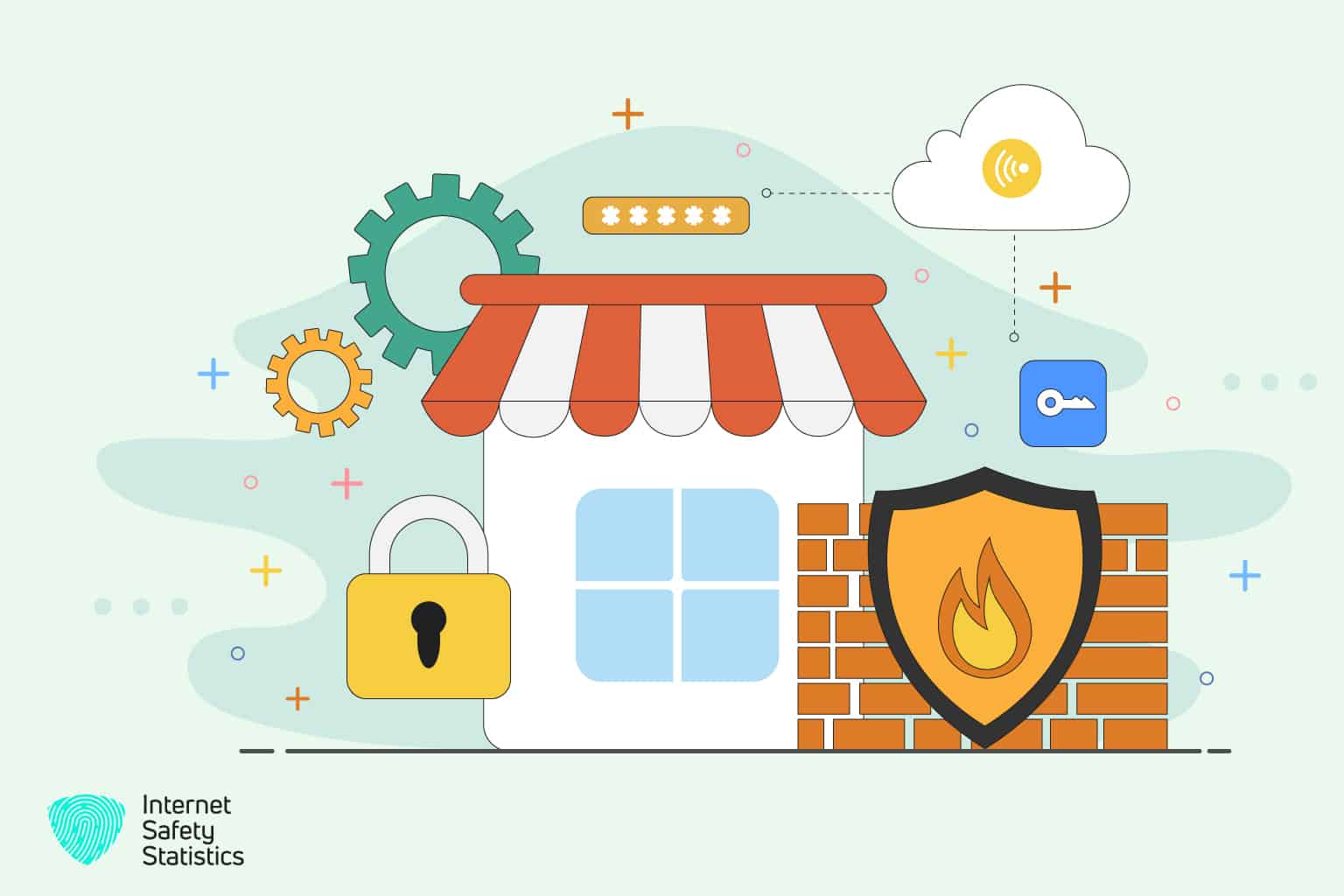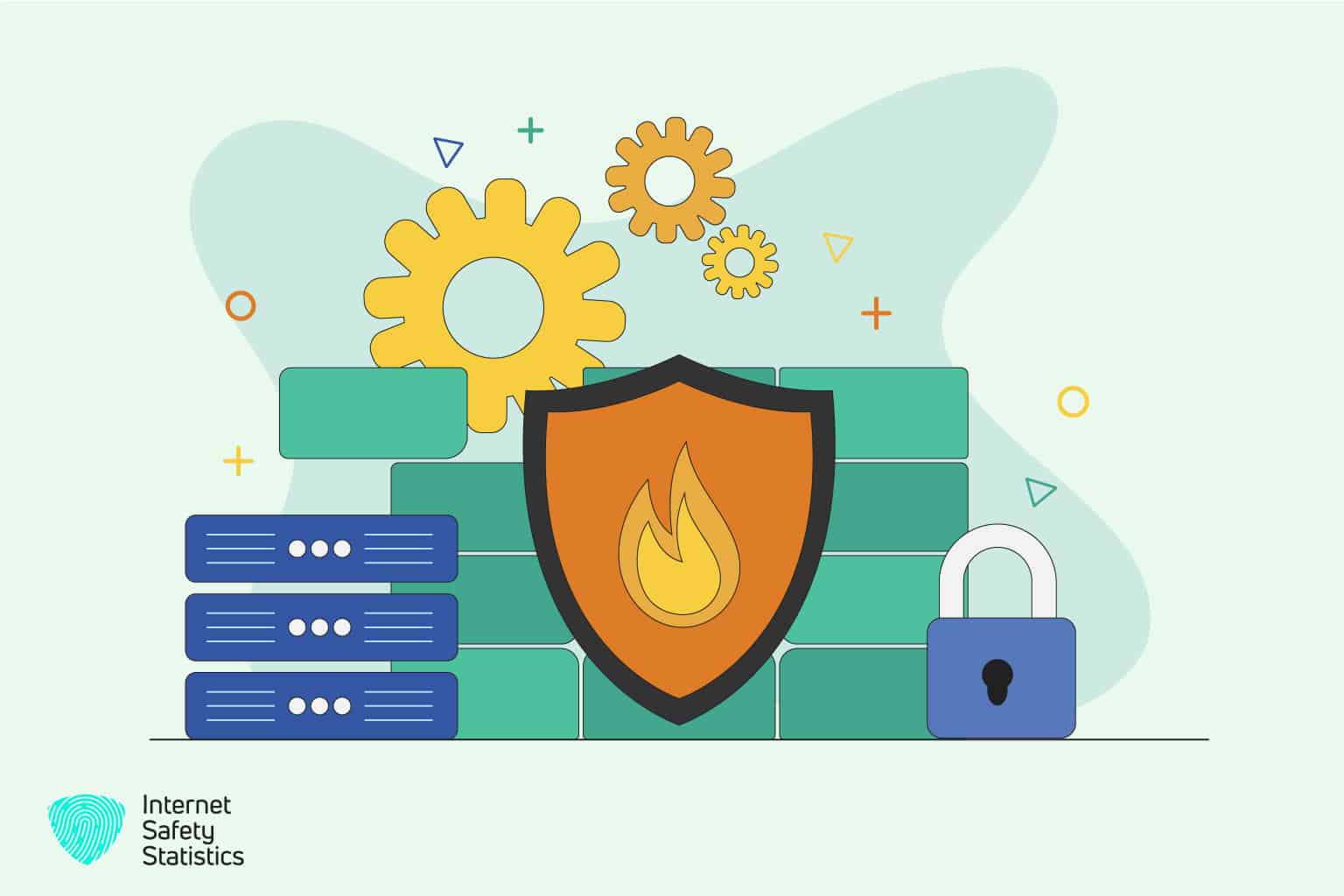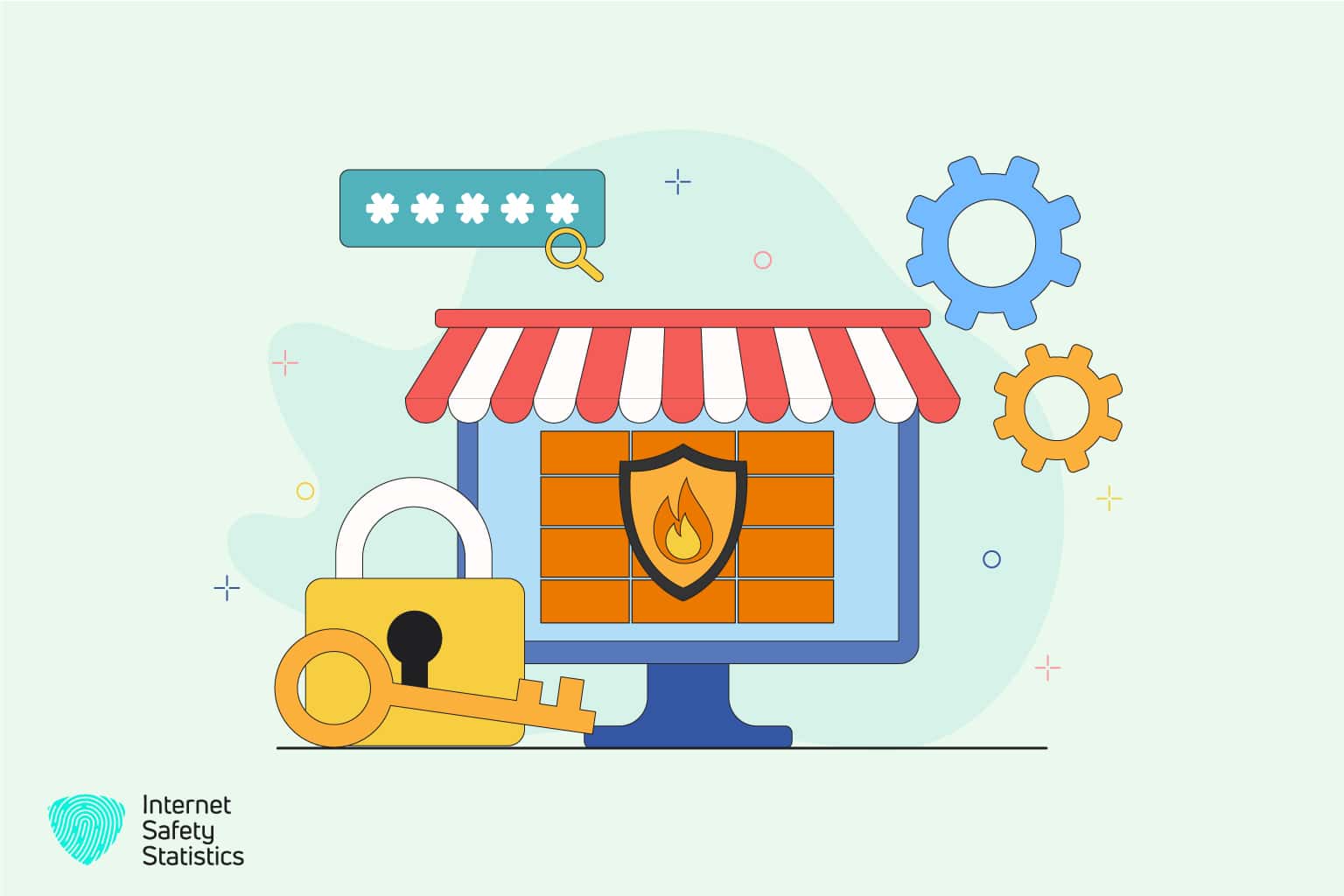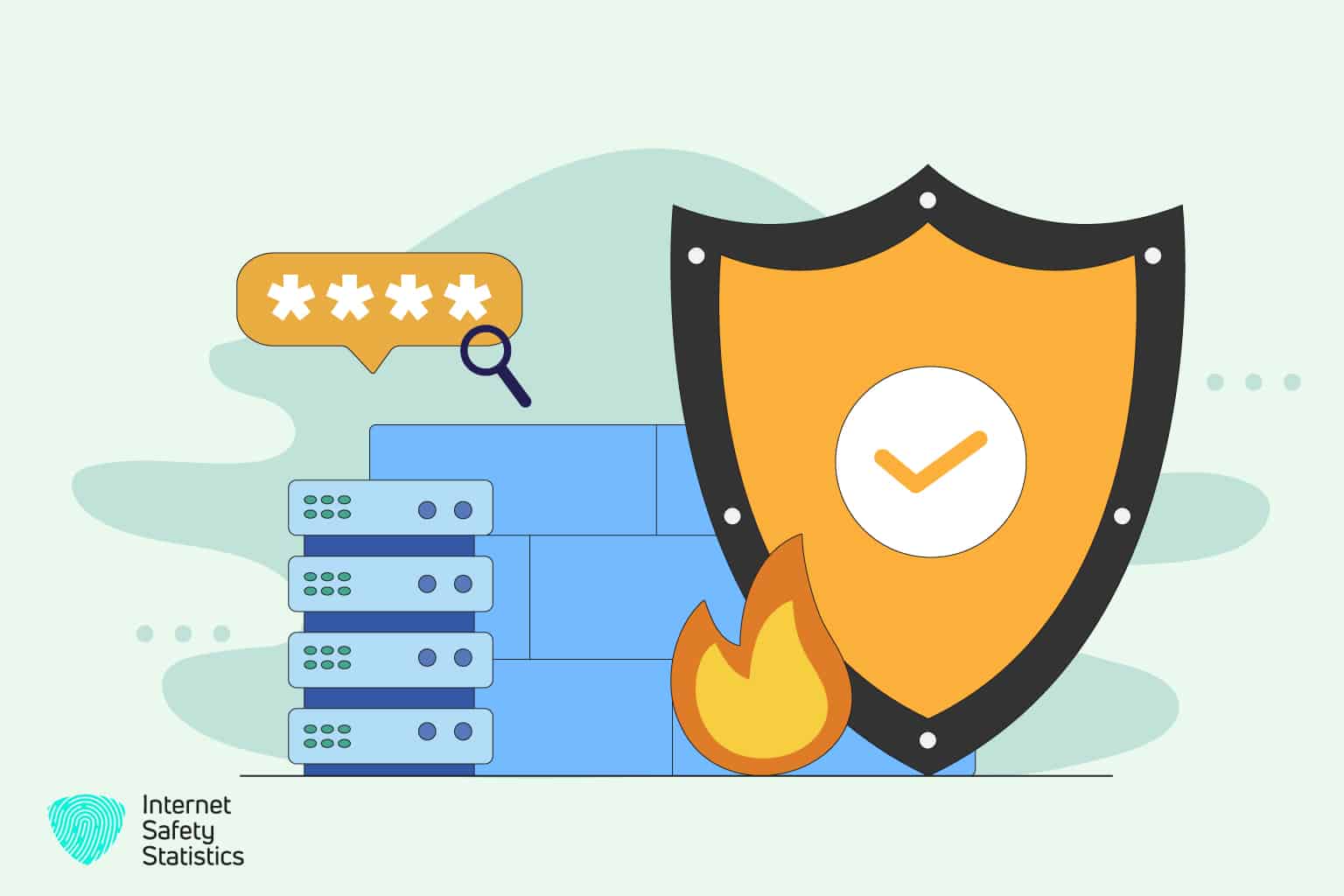
Small businesses must prioritise their cyber security posture as cyber-attacks develop and become more sophisticated. A firewall is an element of hardware or software that guards a company’s network by keeping track of and managing incoming and outgoing network traffic in line with pre-established security standards. It can block unauthorised access, prevent malicious traffic from entering the network, and filter outgoing traffic to prevent data leaks. However, with so many firewall options, choosing the right one for a small business can take time and effort.
The top small company firewall alternatives available will be examined in this article, considering security capabilities, scalability, usability, and reputation. Small business owners will comprehend firewall solutions better after reading this article. They can thus make better decisions on how to protect their business network.
Do You Need a Firewall for Small Businesses?
Yes, a firewall is essential for small businesses to protect their sensitive information and digital assets and prevent unauthorised access to their network. A firewall is an element of hardware or software that keeps track of and regulates incoming and outgoing network traffic by pre-established security standards.
A small company network without a firewall is susceptible to online dangers, including malware, ransomware, phishing, and hacking. Data breaches, financial losses, reputational harm, and legal responsibility are all possible consequences of these dangers.
By stopping hostile traffic from entering the network, restricting unauthorised access to a company’s network, and filtering outgoing traffic to prevent data leaks, a firewall may defend against these risks. It can also include more sophisticated security features like web filtering, VPN capabilities, antivirus and anti-malware protection, intrusion detection, and prevention.
So, to guard against cyber threats and guarantee the protection of sensitive data and assets, a firewall is a critical element of a small business’s cyber security plan and should be considered an essential investment.

Why Do You Need a Good Firewall for Your Small Business?
A good firewall is essential for small businesses because it is the first defence against cyber threats. Malware, viruses, ransomware, and other cyber security attacks can result in data loss, financial loss, and reputational damage to a small business. In addition, without a good firewall in place, small businesses risk falling victim to cyber-attacks that can compromise their entire network.
A firewall helps protect a small business’s network by controlling and monitoring incoming and outgoing traffic based on predefined security rules. It can block unauthorised access attempts, filter out malicious traffic, and prevent data leakage. Additionally, a firewall can provide insight into network traffic patterns, allowing small businesses to identify potential vulnerabilities and take steps to mitigate them.
Moreover, a good firewall can help small businesses meet these compliance requirements to avoid costly fines for non-compliance. A good firewall is critical for small businesses to protect their network and data from cyber threats, meet compliance requirements, and maintain customer trust. Therefore, small businesses should prioritise investing in a robust firewall solution as part of their cyber security strategy.
How Many Firewalls Do You Need for Small Businesses?
The number of firewalls a small business needs depends on its network architecture, size, and complexity. However, a small business generally requires at least one firewall to protect its network from cyber threats.
If a small business has a single location with a relatively simple network architecture, a single firewall may be sufficient to protect the entire network. However, multiple firewalls may be necessary if a small business has various locations, a more complex network architecture, or higher security requirements.
For example, if a small business has multiple offices or remote workers, a virtual private network (VPN) may be required to secure the connections between the different locations, requiring additional firewall devices to protect the VPN connections.
Moreover, suppose a small business has a separate guest network or provides public Wi-Fi access to customers. In that case, a different firewall may be needed to secure these networks, ensuring they do not pose a risk to the primary business network.
So, the number of firewalls a small business needs depends on its specific requirements and network infrastructure. A cyber security expert can guide the number and type of firewalls needed to ensure adequate protection against cyber threats.

How Do You Choose a Firewall for Your Business?
Choosing the most suitable firewall for your business can be challenging, but it’s a critical decision that can impact your cyber security posture. When picking a firewall for your company, keep the following things in mind:
- Business requirements: Identify your business requirements and network infrastructure. Consider the number of users, devices, and network resources you need to protect and your security and compliance requirements.
- Security features: Look for a firewall with a range of security features that can protect against various cyber threats, such as intrusion prevention, malware protection, web filtering, and application control. Also, consider features like VPN capabilities, which can secure remote access to your network.
- Scalability: Consider the ability of the firewall to scale with your business’s growth. It will help if you choose a firewall to accommodate your future needs, whether that is increasing users, devices, or network resources.
- Ease of use: Choose a firewall that is easy to use and manage. If you have or don’t have an IT staff, consider a firewall with an intuitive interface that can be easily configured and monitored.
- Cost: Consider the entire cost of ownership of the firewall, including licencing, maintenance, and support fees. Choose a firewall that fits your budget, but don’t compromise on security features or quality.
- Reputation and reliability: Choose a firewall from a respected company with a track record of providing trustworthy and efficient security solutions. Review customer reviews and ratings to confirm that the firewall meets your expectations.
When selecting a firewall for your company, it’s essential to carefully analyse your needs, security features, scalability, usability, cost, reputation, and dependability. By weighing these aspects, you may select a firewall that offers the best protection for your company from cyber-attacks.
What Type of Firewalls Do Most Companies Use?
Most companies use either a hardware firewall, a software firewall, or a combination of both to protect their network from cyber threats.
Hardware firewalls are physical devices between a company’s internal network and the internet. They function at the OSI model’s network layer and can filter traffic by predefined security rules. Hardware firewalls are often considered more secure than software firewalls for being less susceptible to attacks that compromise the host operating system.
On the other hand, Software firewalls run at the OSI model’s operating system or application layer and are installed on individual devices. Depending on specific guidelines or norms, they can be set up to either block or permit traffic. Software firewalls are frequently used to safeguard personal computers, laptops, or mobile devices and often come as part of an operating system or security software package.
Many businesses now utilise a combination of hardware and software firewalls to offer many levels of network security in recent years. This approach is a “unified threat management” (UTM) solution. It typically combines antivirus, intrusion prevention, web filtering, and VPN capabilities into a single device or software suite.

What Are the Best Small Business Firewalls?
The security of a small business is essential to its existence in the current digital era. Given the surge in cyberattacks and data breaches, preventing unauthorised access to business resources and safeguarding sensitive information are essential. Therefore, a firewall is necessary to preserve a company network and guard against these dangers. The best small-company firewall options are listed below:
Sophos XG Firewall
Sophos XG Firewall is a comprehensive security solution designed for small businesses. It offers advanced protection against malware, ransomware, application control, web filtering, and other cyber threats. In addition, the firewall is easy to use and configure, making it an excellent choice for businesses without dedicated IT staff. It also provides a dashboard that allows real-time network activity monitoring and alerts for suspicious activity.
Fortinet FortiGate
Fortinet FortiGate is a popular firewall solution for small businesses, offering robust security features at an affordable price point. It provides high-performance firewall capabilities, intrusion prevention, and web filtering to protect against various threats. The firewall is also easy to manage and deploy, making it a common choice for small businesses with limited IT resources.
Cisco ASA
Cisco ASA is a widely used firewall solution for small businesses. It offers powerful security features, including VPN and intrusion prevention, advanced threat detection, and response capabilities. It also provides extensive reporting and analytics tools, allowing businesses to monitor network activity and identify potential security threats. However, it may require extensive IT knowledge and resources to set up and manage effectively.
WatchGuard Firebox
WatchGuard Firebox is a firewall solution designed for small businesses that need high protection against cyber threats. It offers advanced security features, including intrusion prevention, web filtering, and application control. The firewall also provides real-time monitoring and reporting tools, allowing businesses to identify potential security breaches quickly. However, deploying and managing everything effectively may require extensive IT knowledge and resources.
SonicWall TZ
SonicWall TZ is a firewall solution for small businesses with advanced security needs. It provides robust security features, including intrusion prevention, web filtering, and VPN capabilities. The firewall is a great option for small organisations with minimal IT personnel because it is very simple to set up and administer. It also offers real-time monitoring and reporting tools, allowing businesses to stay on top of potential security threats.
That’s All!
A firewall is a crucial tool for defending against cyber-attacks, and a small business’s security is vital to its existence. The five firewall alternatives mentioned above are some of the most effective choices for small organisations, each with unique features and advantages. Cost, security, and ease of use are essential factors when selecting a small company firewall. With the proper firewall, small companies may relax, knowing that their primary data and resources are secure from online attacks.
